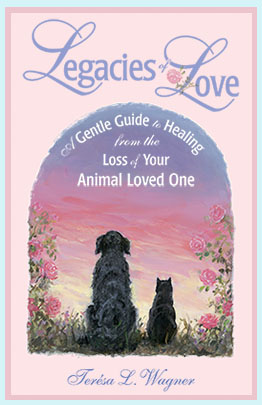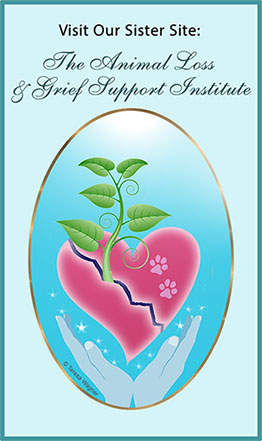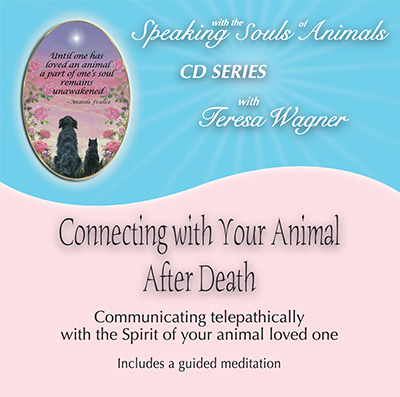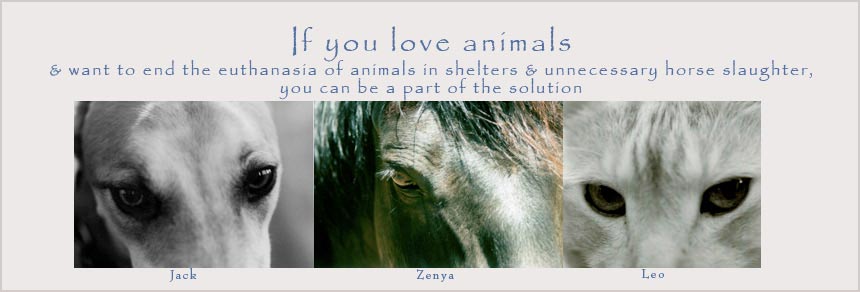Compassion Fatigue
Balancing Service and Self Care:
Healing Ideas for a Whole Life
-
Examine your motivation to help animals. Be willing to work on eliminating thoughts and beliefs which contribute to compassion fatigue and add those which prevent and heal it. See Exploring our Core Beliefs and Motivations to Help Animals
-
Remember to love yourself as much as you love the animals! Whatever your unique motivation to help animals, be sure it's balanced with loving yourself. If you don't take care of you, there will be little of quality left to give to the animals.
-
Honor yourself as one of the heroes who does some of the hardest and most important work done for animals in the world. Recognize and remember that in the complex, big picture of animal welfare issues you are part of the solution. You deserve and need to feel proud about what you are contributing.
-
Identify and work on healing your own painful life issues. Many of us are attracted to helping animals not only because we genuinely love them but because we also have been neglected, abandoned, or abused and it can be very fulfilling to help others who have been hurt like us. This is a commendable thing--but not if we avoid facing and healing our own pain. Sometimes we can even become addicted to helping in an unconscious quest to really heal ourselves. Don't be afraid to seek professional counseling, participate in a support group or other modes of healing. Sometimes we all need help processing overwhelming feelings or understanding and healing the hurts from our past, or need support to live with the horrors we sometimes see in this work. Seeking the help of a counselor when your heart is in pain is just as important as seeking the help of a doctor when your body is hurt.

-
Learn to protect yourself from others' emotional pain. We each have the capacity to feel and express deep compassion and empathy for animals and each other without taking on others' pain. We are less able to help when we take ownership of others' problems and pain because to do so takes so much energy. If you are a sensitive person and tend to feel the pain of others around you, you may want to consider listening the the MP3 recordings of Energetic Boundaries and Protection (though the were created for animal communicators and grief support practitioners, the principles and strategies are appropriate for anyone). Also consider reading the book The Highly Sensitive Person's Survival Guide which is listed in the resource section,
-
Accept your limitations - you can't save them all. No one person alone will change the overpopulation problem, find appropriate homes for every animal, or rescue every wild animal in distress. Yet together we can make a huge difference and change the world for the better, one animal at a time. When you feel overwhelmed or unable to do more, ask for help. Ask other people to help and, if it's in your belief system, pray.
-
Maintain a healthy and strong support system. Seek out people who share your values and nurture your growth. Cherish and enjoy your relationship with your own companion animals. Feel good about the love and home you provide for them.
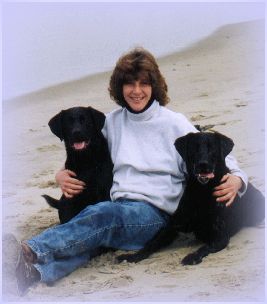
-
Schedule time to simply relax and play! Cultivate interests, activities, and hobbies beyond your work. Shelter work is emotionally, physically, and spiritually taxing. Your deserve rejuvenation time - regularly!
-
Learn that strong emotions can be tolerated and need not be avoided. The work you do with and for animals is probably the most emotionally complex and exhausting work of any of the helping professions. Strong feelings of anger and rage, deep sorrow and anguish, and guilt are likely to be regular, returning experiences. Because of their strength and recurring nature, it's very, very important to learn ways to not merely temporarily cope and escape their intensity (though that's certainly healthy and necessary), but to learn to process these feelings and to release them. It's possible to live with these intense emotions without feeling overwhelmed or scared, or without stuffing and denying them. Feeling overwhelmed leads quickly to burnout, and denied feelings always come back later to haunt us. Find safe, comfortable, and appropriate ways to express your emotions:
- Talk about your feelings with someone who will listen and not judge you. Consider seeking the help of a counselor or therapist. (Be sure to look for a therapist who is trained in traumatic stress. Local Red Cross offices are good places to get referrals for this.)
- Write your feelings—in a journal, in unsent letters, in poetry, articles, or in carefully thought out letters to the person or group with whom you're angry.
- Draw your feelings—with paper and pen, with paints, with colored markers, etc.
- When you're really angry express your anger through a safe "temporary stopgap until it's released so you have the energy and calmness to explore it further.
- When feeling overwhelmed by sadness or grief, know this is a normal response to the work you do, and know you will not always feel it. Temporarily contain your overwhelming feelings in your "safe place" where you can take them out to process when you have the energy and the support you need to do so.
It's natural for any of us experiencing overwhelming emotions to seek relief. Some of us may stretch out in front of the TV, go shopping, sleep, work out or take a walk. Sometimes, too, it's easy for people with on-going, unchanging pressure to turn to alcohol or drugs for needed relief. Be very, very careful about your consumption of addictive substances, including prescription drugs. If you believe you are currently addicted to any substance, reach out for help now. You deserve a whole, full life in return for your work for the animals, not one riddled with the pain of addiction.
-
Learn and practice effective interpersonal skills to help you communicate with people at every level of your organization, the public, and with other agency personnel. Though it's true that most people are in this field because they love animals, we still all have varying personalities which can be cause for conflict, and our values and philosophies about how numerous animal issues should be handled will never be identical. Sharing love for the animals does not in and of itself make people working for them get along or work productively together. If we ex pect others to hear and care about our ideas and concerns, we all have a responsibility to build skills in empathic listening, influencing, negotiating, supervising, handling conflicts and customer service.
A great source for workshops on these topics is from organization consultant Jan Elster at www.shelterskills.com.

-
Treat yourself to sensory rejuvenation. In animal sheltering and resuce work, the senses of smell, sight, touch, and sound can be assaulted. Cleaning kennels doesn't smell so nice. Hearing dogs in rows and rows of kennels crying for attention you may not have time to give for as long as you'd like can be heartbreaking. Seeing animals who have been physcially neglected or harmed is very hard to see. By intentionally treating ourselves to sensory delights such as fragrances, music, petting our animals, or watching a sunset, we can help compensate our bodies and spirits for the regular onslaught of unpleasant sensory experiences. Find creative and meaningful ways to soothe your senses which make you feel alive, relaxed, and well.
-
Treat yourself to laughter! The heaviness of your work deserves to be balanced with humor and lightness. Watch those funny movies, laugh at your companion animals' antics, enjoy jokes with your colleagues. Enjoy your sense of humor...
-
Embrace your spirituality. Take time out from the stress of this work to connect with your spirit everyday. Clarify what it is that makes you feel in touch with your true spirit and do these things regularly. Whether it's prayer, meditation, being with your own companion animal, viewing wildlife, hugging your significant other, smelling roses, walking at the o cean, spiritual reading_you need and deserve to feel centered and whole. Find comfort, strength, and meaning in your own spiritual beliefs and practices.
Psychological approaches to stress management tend to be the ones that help us cope. Though coping is a necessary competency for daily living, to truly heal stress, to truly comes to terms with the deep pain of compassion fatigue, we need to be at peace in our own souls.
COPYRIGHT AND AUTHORSHIP NOTICE: The information contained in this Compassion Fatigue section of my site was originally written in 1994, has been updated several times and has been copyrighted since its inception. In July 2015, Judy Scheffel used the material on these pages as if it was her own, violating copyright law and a written agreement to use it only with attribution, for a webinar organized by Lisa Levinson and sponsored by In Defense of Animals. A video of the webinar, in which Scheffel plagiarized thousands of words from this site and deceptively presented the models in these pages as if they were her own original concepts, appeared on the In Defense of Animals web site and on YouTube until August 20, 2016.
If you participated in this webinar or viewed it on YouTube, please be advised that authorship of approximately 80% of the webinar content includes material copyrighted by Teresa Wagner and was used fraudulently by Judy Scheffel.
Exploring our Core Beliefs and Motivations to Help Animals
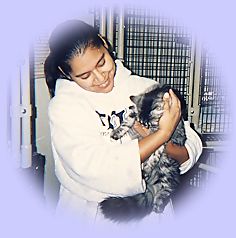
In response to both written surveys and verbal exercises in compassion fatigue workshops I've conducted, involving several hundred shelter employees since 1995, the number one reason people have given over and over again for doing this work is "because I love animals." As truly honorable and noble as this motivation is, it can sometimes go awry. Sincere love and compassion can give way to unhealthy boundaries. Dedication can turn into co-dependency. Empathy can become enmeshment. Commitment can turn into overcommitment and fatigue.
One of the most powerful things we can do to keep our love, compassion, empathy, dedication and compassion healthy and alive, for both the animals and ourselves, is to periodically examine our own beliefs and reasons for doing this work. Take a look at the statements below and use them as a gauge to see how your own thoughts and beliefs may be contributing to either compassion fatigue or your own inner peace.
Thoughts and Beliefs Which contribute to Compassion Fatigue
Write in the blank area next to each statement whether the statement relates to you in the present, in the past, both, or leave blank if not relevant:
_______ 1. I tend to love and care for animals first and tend to neglect myself.
_______ 2. Sometimes I think I take on the animals' suffering, or, I close myself off from feeling anything.
_______ 3. It makes me really uncomfortable or feel like a failure that I can't rescue every one, make it all better, fix it or solve the problems for every animal.
_______ 4. Nobody else could do just what I'm doing quite as good or thoroughly as I do it, or cares enough to do what I do the way that I do it, so I feel like I must do it all.
_______ 5. It's a lot easier for me to focus all my helping energy on the animals' pain and trauma than it is to face and work on my own issues in need of healing.
_______ 6. My heart goes out to abused, neglected, and unwanted animals because I know what this feels like. I don't want them to hurt--so if I give all my love to them, maybe I can feel better too. Sometimes I feel almost addicted to helping them, fixing problems for them, and being needed by the animals.
Thoughts and Beliefs Which prevent & heal Compassion Fatigue
_______ 7. I care for and love the animals very much, but I also take pretty good care of myself.
_______ 8. I try to comfort the animals and give them my love and compassion. I feel deep empathy for their pain but I don't take it on as my own.
I know that their pain is separate from my pain.
_______ 9. I believe I can make a difference for many animals whose lives I touch. Though sometimes sad and frustrated by the work, I still find satisfaction in doing what I can. I accept that I can't help them all, that there is a problem bigger than me. I does, however, feel good to be part of the solution.
_______ 10. I feel useful and good about giving my skills, gifts, and competencies for the animals. I feel good about giving back to the world by helping the animals. And I know there are many others who help also--I am not the only person who can help.
_______ 11. I love and care deeply for the animals, and I also pay attention to my own issues and strong feelings which need processing or healing.
_______ 12. I am aware of areas in my life where I didn't receive the nurturing, love and care all beings--including me--need and deserve. While it brings me great fulfillment to give these things to the animals, I am careful to give myself, and seek for myself, nurturing, love and care also.
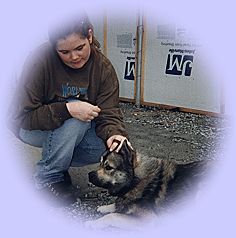
Ideally, the first set of statements would reflect our past, and the second set of statements would reflect our present (and perhaps past also).
A few years ago at a conference where this exercise was used in a workshop, a woman stood up afterwards and shared her reaction to it. She said, "I've been in this business for more than twenty years. Most of us start out with the first six of these statements being how we operate. Then, over time, if we're lucky, we learn to work from those second set of statements. I've seen my staff who can't make that change and they burn out, burn out bad. We have to operate from this second set (of statements), or we'll make ourselves crazy."
I couldn't agree more. And, some of us need some support and help in making those changes. I believe that many people come to this life with a deep, natural ability and desire to express compassion, empathy and love, and that they give these gifts as service to the animals. In being near many of these people in their professional and personal lives over the years, I've also come to believe that those who came here to give such compassion do that almost effortlessly. What does not seem to come effortlessly is giving those gifts to ourselves--to love and care for ourselves as well as we do those we serve. It seems to be almost a right of passage for dedicated helpers to learn to care for themselves as well as they do those they care so deeply about.
If this is an issue you are working on, an area in which you want to grow, you may want to read the following helpful books:
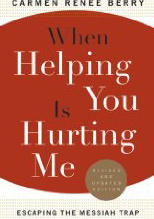 |
When Helping You Is Hurting Me: Escaping the Messiah Trap by Carmen Renee Berry |
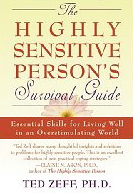 |
The Highly Sensitive Person's Survival Guide: Essential Skills for Living Well in an Overstimulating World (Step-By-Step Guides), by Ted Zeff |
 |
The Caregiver's Book: Caring for Another, Caring for Yourself, by James E. Miller |
COPYRIGHT AND AUTHORSHIP NOTICE: The information contained in this Compassion Fatigue section of my site was originally written in 1994, has been updated several times and has been copyrighted since its inception. In July 2015, Judy Scheffel used the material on these pages as if it was her own, violating copyright law and a written agreement to use it only with attribution, for a webinar organized by Lisa Levinson and sponsored by In Defense of Animals. A video of the webinar, in which Scheffel plagiarized thousands of words from this site and deceptively presented the models in these pages as if they were her own original concepts, appeared on the In Defense of Animals web site and on YouTube until August 20, 2016.
If you participated in this webinar or viewed it on YouTube, please be advised that authorship of approximately 80% of the webinar content includes material copyrighted by Teresa Wagner and was used fraudulently by Judy Scheffel.
Compassion Fatigue Workshops
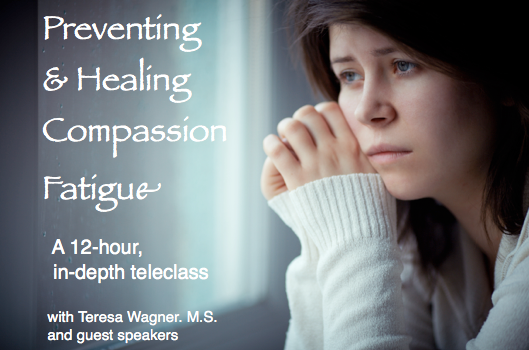
This in-depth teleclass includes over 12 hours of digital audio from five 2-hour class sessions and 148 pages of handouts is available.
Click here for a detailed description of the class
Purchase On-Demand
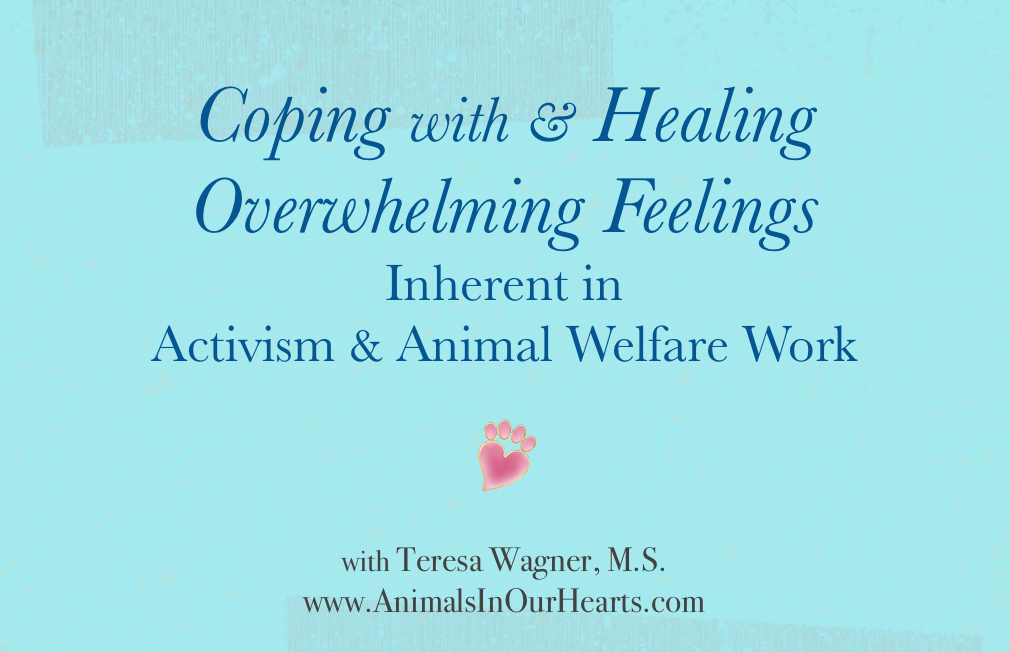
This in-depth, yet shorter teleclass includes 2.5 hour of digital audio and 36 pages of handouts. This teleclass focuses exclusively on dealing with the normal, albeit overhwhelming, feelings that are part of working to help the animals of the world.
Click here for a detailed descripton of the class
Purchase On-demand
The on-demand format of both classes allows you to receive the audio recordings and handout materials for all the class sessions and work through the material in your own time frame, at your convenience.

The Starfish
Loren Eiseley
One day a man was taking a sunrise walk along a beach. In the distance he caught sight of a young woman who seemed to be dancing along the waves. As he got closer he saw that the young woman was actually not dancing, but picking up starfish from the sand and tossing them gently back into the ocean.
"What are you doing?" the man asked.
"The sun is coming up and the tide is going out; if I don't throw them in they'll die."
"But young woman, there are miles and miles of beach with starfish all along it--you can't possibly make a difference."
The young woman bent down, picked up another starfish, and placed it lovingly back into the ocean, past the breaking waves.
"It made a difference for that one," she replied.
If you give of your life energy to help animals, professionally or as a volunteer, you know this story. You live it. You know the urges of compassion; you know the driving desire to help. And you know the pain of seeing how many more there are, and the pain of realizing you can't save them all. And you know the joy and fulfillment that comes from helping and saving the ones you can.
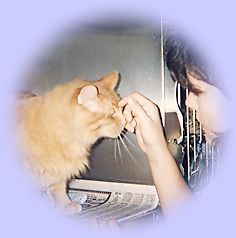
Giving love and support to animals in need, animals in pain, is a sacred thing. It fulfills our own healthy need to give, to help, and to love. Along with the rewards, there can be heartache in helping animals, deep wrenching heartache. Continued exposure the pain and trauma of others is what makes us susceptible to Secondary Traumatic Stress, more commonly called compassion fatigue.
Feeling love for animals is easy. Acting on a strong and genuine desire to help animals and the people who love them and mourn for them is commendable. Feeling our own pain in response to their suffering, however, can be overwhelming. When we love animals deeply, when we are sensitive to the pain of people and animals who are hurting and when we are exposed to their suffering we can become depleted. Whatever our roles to help animals and their people, exposure to their pain, hearing about and witnessing their stress and trauma can create very real physical, emotional or spiritual fatigue. Compassion can hurt.
Compassion fatigue is an issue of importance for all people who have devoted their lives, their careers or their volunteer time to helping animals and/or the people who care about them: Those who work in animal shelters, rescue, sanctuary and advocacy organizations, those who provide grief support for people who have lost their beloved animals, those who work tirelessly in the animal rights and animal welfare fields, those who work in veterinary medicine and other animal support services.
For those who work directly to help animals and the people who love them, who work tirelessly to save their lives and make their lives better, and those who support animals and humans in grief and trauma, the probability of experiencing compassion fatigue is high. From research in the traumatology field, we've learned that people who are involved with trauma victims are at high risk of experiencing secondary traumatic stress, commonly called compassion fatigue. Compassion fatigue is the unique form of stress experienced only by people helping, treating or supporting trauma victims. It is different from stress and burnout in that its cause is always related to caring and exposure to others' crisis.
It takes dedicated, strong, empathic, compassionate and loving people to endure the on-going exposure to the stress and pain of the animals and people they serve. These dedicated, strong, empathic and loving people need support. They need comfort, nurturing, understanding and rejuvenation to continue their work and to lead healthy lives.
To heal compassion fatigue, we must learn how to give ourselves the same dedication, love, compassion and care we give the animals and our human clients. We must learn to practice not only everyday coping techniques, but to employ long term healing strategies as well. We cannot serve the animals we love so dearly and the clients we care so much about if we are chronically fatigued, stressed and burned out. If we are to continue our work giving the best that we have to give, and if we are to enjoy our lives, then caring for ourselves must be as important as caring for the animals and our human clients.
Give yourself the gift of learning about how to prevent, cope with and heal compassion fatigue. You are just as important as the animal and human clients you serve.
For all of you who give your life energy to help animals and/or the people who love and mourn animals, thank you.
***Note about The Starfish story:
The scientific term for a starfish is sea star. They are invertebrates, not fish.
Who is Teresa?
Teresa’s work with compassion fatigue began in 1994 with a request to design and facilitate a workshop for the staff of the SPCA of Monterey County, CA. From there her work in this field grew into providing over 40 workshops for shelter staff and animal welfare conferences throughout the United States ranging from two hours to two days in length. Her clients have included the Humane Society of the United States, The American Humane Association, Best Friends Animal Sanctuary, California Council for Wildlife Rehabilitators and individuals from more than 50 animal shelters.
The workshops that have been offered in those early years have been completely redesigned, updated and refined to integrate both the literature and research that has been published since the time frame of the original classes as well as many more in-depth tools on coping with and healing the overwhelming feelings that are part of working with traumatized animals and clients. From the inception of the first workshop, several hundred hours have been devoted to her continuing education regarding state-of-the-art research and practice in the fields of traumatology, post-trauma stress, grief and compassion fatigue to insure that the most current and effective content is included in her workshops. She has a masters degree in counseling psychology and has also completed post graduate work at Columbia University and the University of Nottingham, England.
COPYRIGHT AND AUTHORSHIP NOTICE: The information contained in this Compassion Fatigue section of my site was originally written in 1994, has been updated several times and has been copyrighted since its inception. In July 2015, Judy Scheffel used the material on these pages as if it was her own, violating copyright law and a written agreement to use it only with attribution, for a webinar organized by Lisa Levinson and sponsored by In Defense of Animals. A video of the webinar, in which Scheffel plagiarized thousands of words from this site and deceptively presented the models in these pages as if they were her own original concepts, appeared on the In Defense of Animals web site and on YouTube until August 20, 2016. If you participated in this webinar or viewed it on YouTube, please be advised that authorship of approximately 80% of the webinar content includes material copyrighted by Teresa Wagner and was used fraudulently by Judy Scheffel.

